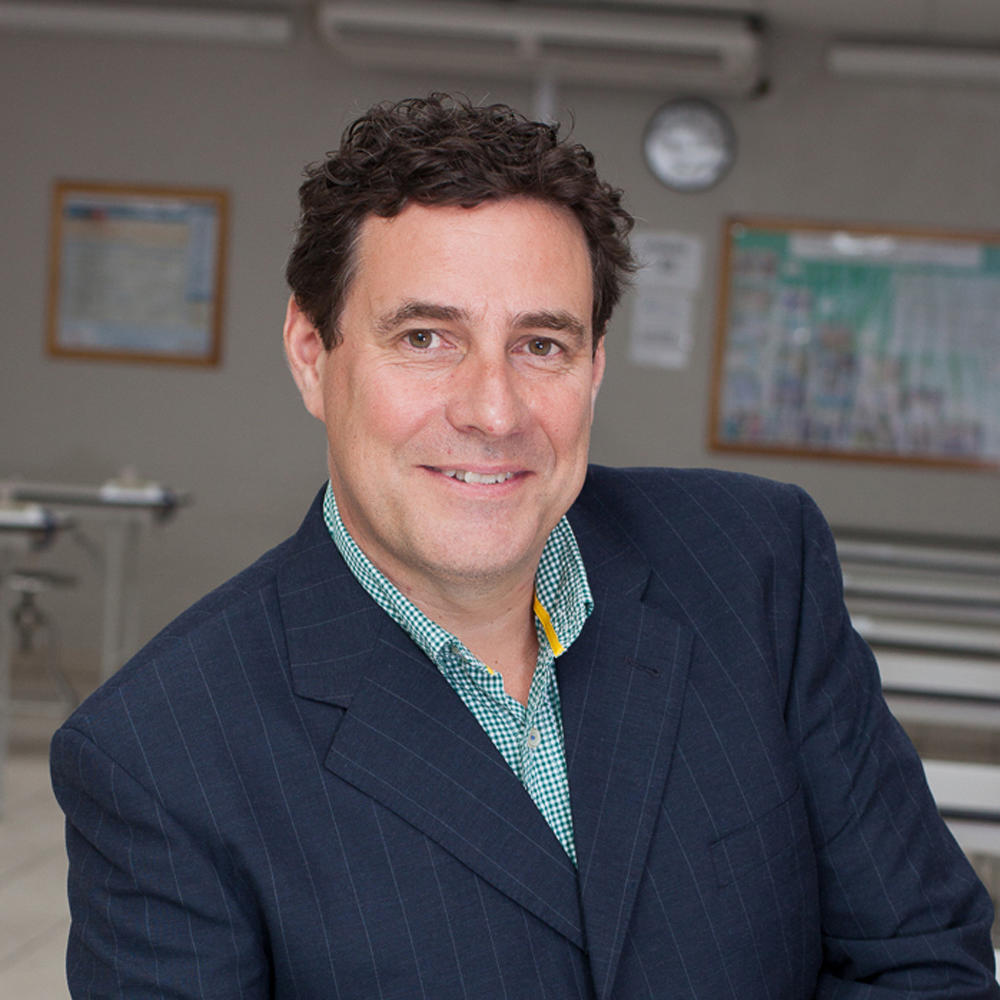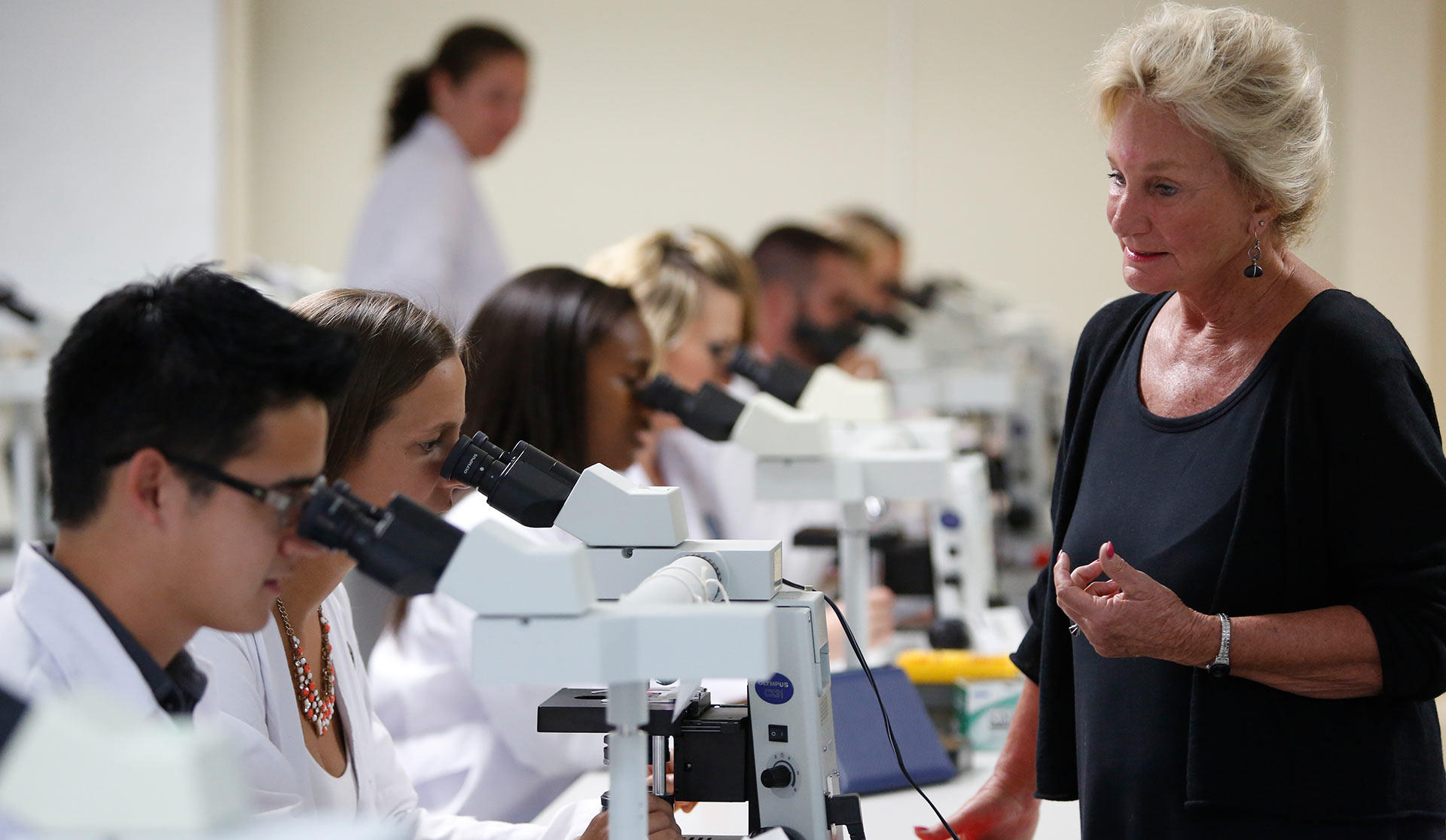
Mark A. Freeman, BSc, PhD
Biological Sciences
P.O. Box 334
Basseterre, St. Kitts, West Indies
Phone: +1 869-465-4161 Ext. 401-1327
mafreeman@rossvet.edu.kn
Originally from England, Mark studied Marine Biology in Wales, specializing in zooplankton communities in Mauritius. After which, he was awarded a British Council scholarship to study larval shrimp in Mexico. He completed his PhD in Scotland, looking for natural pathogens of parasitic copepods (sea lice) causing epizootics on commercial salmon farms. A Royal Society of London Postdoctoral Fellowship, based at the University of Tokyo allowed a further four years study on parasites of farmed fish. He served as an Associate Professor at the University of Malaya, Kuala Lumpur, working with marine parasites and in marine biotechnology. He returned to Europe in 2014 to continue to work with colleagues at the University of Iceland in Reykjavík, before joining RUSVM in October 2015.
EDUCATION
PhD: Institute of Aquaculture, University of Stirling, Scotland, UK. “Diversity of organisms associated with the salmon louse, Lepeophtheirus salmonis, on farmed Atlantic salmon: candidates for biological control.”
BSc: (Hons) Marine Biology, University of Wales, Bangor, UK.
RESEARCH INTERESTS
My main area of interest is aquatic parasitology, especially parasites infecting commercially important cultured and wild marine fish and shellfish that are considered to be important from a sustainable aquatic food security aspect and those with zoonotic / food safety concerns. Studies include the identification and characterization of novel / emerging and existing parasites in aquaculture facilities and the natural environment, using molecular, histological and EM techniques. This allows a better evaluation of pathogenicity to the host and enables the development of more sensitive diagnostic tools that can be used to implement improved management and control strategies therefore mitigating potential losses to farmed and wild stocks.
Studying marine organisms and their interactions with each other, and their environments, has led me to question some forms of parasitic associations. A fundamental research question I am interested in involves understanding the evolutionary relatedness of basal taxa of certain large groups, such as the ancestral link between the dinoflagellates and the apicomplexan members of the alveolate superphylum. Correctly placing basal taxa can alter our accepted views of evolutionary significant events and the subsequent evolution of these two important groups, to develop into either obligate intracellular parasites (apicomplexans) or photosynthetic flagellates that form a high percentage of the primary marine biomass (dinoflagellates).
PUBLICATION HIGHLIGHTS
V. Mathur, M. Kolisko, E. Hehenberger, NAT. Irwin, BS. Leander, Á. Kristmundsson, M.A. Freeman, Patrick J Keeling 2019. Multiple independent origins of apicomplexan-like parasites. Current Biology, 29 (17) p836-39. doi: https://doi.org/10.1101/636183
M.M. Dennis, A. Izquierdo, A. Conan, K. Johnson, S. Giardi, P. Frye, M.A. Freeman 2019. Scaphanocephalus-associated dermatitis as the basis for black spot disease in Acanthuridae of St. Kitts, West Indies. Diseases of Aquatic Organisms (in press)
K. Tiley, M.A. Freeman, Yen, I, M.M. Dennis, 2019. Histology atlas and systematic approach to postmortem examination of the queen conch Lobatus gigas. Journal of Shellfish Research, 38(1):131-148. https://doi.org/10.2983/035.038.0113
M.A. Freeman and Á. Kristmundsson 2018. Studies of Myxidium giardi Cépède, 1906 infections in Icelandic eels identifies a genetically diverse clade of myxosporeans that represents the Paramyxidiumn. g. (Myxosporea: Myxidiidae). Parasites & Vectors 11:551.
Á. Kristmundssonand M.A. Freeman 2018. Harmless sea snail parasite causes mass mortalities in numerous commercial scallop populations in the northern hemisphere. Scientific Reports 8:7865.
K. Tiley, M.M. Dennis, M.R. Lewin-Smith, H.M. Jenkins, Á. Kristmundsson, M.A. Freeman 2018. Digestive gland inclusion bodies in queen conch (Lobatus gigas) are non-parasitic. Journal of Invertebrate Pathology 157:4–8.
M.A. Freeman and Á. Kristmundsson 2018. A closer look at Cryptobia dahli: a parabodonid flagellate from the stomach of the Atlantic lumpfish. Bull. Eur. Ass. Fish Pathol., 38(5): 195-201.
M.A. Freeman, J. Fuss, Á. Kristmundsson, M.F.M. Bjorbækmo, J. Mangot, J. del Campo, P.J. Keeling, K. Shalchian-Tabrizi, D. Bass 2017. X-Cells Are Globally Distributed, Genetically Divergent Fish Parasites Related to Perkinsids and Dinoflagellates. Current Biology 27:1645-1651.
E. Karlsbakk, Á. Kristmundsson, M. Albano, P. Brown, M.A Freeman 2017. Redescription and phylogenetic position of Myxobolus aeglefini and Myxobolus platessaen. comb. (Myxosporea), parasites in the cartilage of some North Atlantic marine fishes, with notes on the phylogeny and classification of the Platysporina. Parasitology International 66:952-959.
G.D. Stentiford, J.J. Becnel, L.M. Weiss, P.J. Keeling, E.S. Didier, B.A.P. Williams, S. Bjornson, M.L. Kent, M.A. Freeman, M.J.F. Brown, E.R. Troemel, K. Roesel, Y. Sokolova, K.F. Snowden, L.F. Solter 2016. Microsporidia: Emergent Pathogens in the Global Food Chain. Trends in Parasitology 32: 336–348.
T.A. Williams, S. Nakjang, S.E. Campbell, M.A. Freeman, M. Eydal, K. Moore, R.P. Hirt, T.M. Embley, and B.A.P. Williams 2016. A recent whole-genome duplication divides populations of a globally-distributed microsporidians. Molecular Biology and Evolution 33(8):2002-2015.
Á. Kristmundsson, Á Erlingsdóttir, M.A. Freeman 2015. Is an apicomplexan parasite responsible for the collapse of the Iceland scallop (Chlamys islandica) stock? PLoS One 10(12): e0144685.
M.A. Freeman and Á. Kristmundsson 2015. Histozoic myxosporeans infecting the stomach wall of elopiform fishes represent a novel lineage, the Gastromyxidae. Parasites & Vectors 8:517.
I. Fiala, M. Hlavničková, A. Kodádková, M.A. Freeman, P. Bartošová-Sojková, S.D. Atkinson: 2015. Evolutionary origin of Ceratonova shasta and phylogeny of the marine myxosporean lineage. Molecular Phylogenetics and Evolution 86: 75-89.
Á. Kristmundsson and M.A. Freeman: 2014. Negative effects of Kudoa islandica n. sp. (Myxosporea: Kudoidae) on aquaculture and wild fisheries in Iceland. International Journal for Parasitology: Parasites and Wildlife 3:135-146.
M.A. Freeman, H. Anshary, K. Ogawa 2013. Multiple gene analyses of the Caligidae indicate that the evolutionary reduction of an appendage in Pseudocaligus represents convergent evolution. Parasites & Vectors 6:336.
Á. Kristmundsson and M.A. Freeman: 2013.Sphaeromyxids form part of a diverse group of myxosporeans infecting the hepatic biliary systems of a wide range of host organisms. Parasites & Vectors 6:51.
M.A. Freeman, J. Kasper, Á. Kristmundsson 2013. Nucleospora cyclopteri n. sp., an intranuclear microsporidian infecting wild lumpfish, Cyclopterus lumpus L., in Icelandic waters. Parasites & Vectors 6:49.
M.A. Freeman, A. P. Shinn 2011. Myxosporean hyperparasites of gill monogeneans are basal to the Multivalvulida. Parasites & Vectors 4:220
M.A. Freeman and K. Ogawa 2010. Variation in the small subunit ribosomal DNA confirms that Udonella (Monogenea: Udonellidae) is a species-rich group. International Journal for Parasitology 40 255-264.
D.J. Morris and M.A. Freeman 2010. Hyperparasitism has wide-ranging implications for studies on the invertebrate phase of myxosporean (Myxozoa) life cycles. International Journal for Parasitology 40 357-359.
M.A. Freeman, J.F. Turnbull, W.E. Yeomans and C.W. Bean 2010. Prospects for management strategies of invasive crayfish populations with an emphasis on biological control. Aquatic Conservation: Marine and Freshwater Ecosystems 20 211-223.
M.A. Freeman, and C. Sommerville 2009. Desmozoon lepeophtheriin. gen., n. sp., (Microsporidia: Enterocytozoonidae) infecting the salmon louse Lepeophtheirus salmonis (Copepoda: Caligidae). Parasites & Vectors 2 58.
M.A. Freeman 2009. X-cell parasites in the European dab Limanda limanda are related to other X-cell organisms: a discussion on the potential identity of this new group of parasites. Parasitology 136 (9)967-80.



